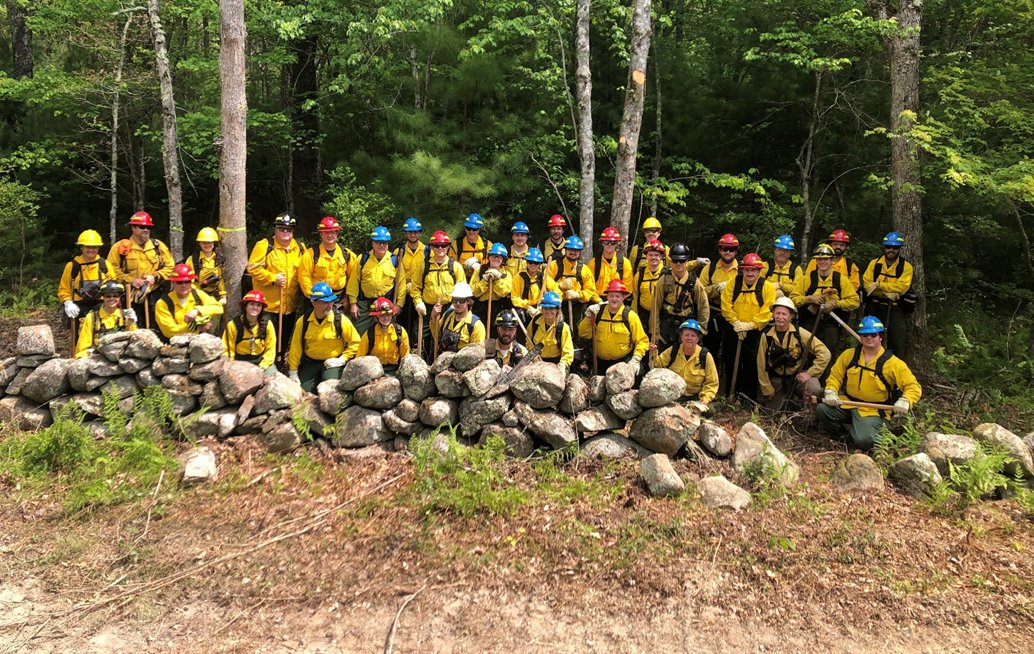Getting ready for the next fire season
 |
| The yellow line of forest firefighters is too thin |
After learning that Rhode Island’s 40,000 acres of state-managed forest land is being managed by a fraction of the staff the Department of Environmental Management once had, Rep. Megan Cotter has introduced legislation to hire more forestry staff.
Representative Cotter (D-Dist. 39, Exeter, Richmond,
Hopkinton), who for the last several months has led a House study commission to
identify ways to improve forest management in Rhode Island, introduced
legislation (2024-H 7258) that would require funding in the state budget
bill for fiscal year 2025 for 10 additional full-time equivalent positions at
the Department of Environmental Management (DEM) “to focus, support and expand
on the department’s efforts in the areas of woodlands, forests and
forestry projects.”
“As our commission has looked at our state’s approach to forest management, we saw that even as we acquired more state-managed land, staffing at the Forestry Division that is in charge of it has been slashed by 75 percent since 1990. We can’t possibly expect safe, effective forestry management with a fraction of the staff we need,” said Representative Cotter.
Representative Cotter introduced the legislation that
created the study commission shortly after the mid-April wildfire that scorched
hundreds of acres at the Queen’s River Preserve in Exeter, the largest forest
fire in Rhode Island since 1942.
Over the course of its meetings, the commission met with current and former forestry leaders, and learned that the forestry division employed 18 laborers, 16 rangers, seven foresters and two equipment operators in 1990.
Today, there are three laborers, four rangers, six foresters and no
equipment operators. Those testifying said the staffing reductions have had
impacts on fire
responses, mitigation efforts, outreach, and visibility on state property to
deter abuse like vandalism and dumping.
Representative Cotter said the state urgently needs more
forestry staffers to protect safety and for proper forest stewardship, but it
is not the only urgent need. She believes the state needs a significantly more
robust approach to forest stewardship, with short- and long-term planning and
action.
“Federal reports consistently underline the imperative for improved forest management, especially given DEM’s reactive approach to issues like the spongy moth infestation, which had the potential to devastate up to 25% of Rhode Island’s trees. DEM staff, already stretched thin, also manage trail maintenance for over 100 acres, often relying on volunteers. Moreover, the same team is responsible for the Firewise program and wildfire protection plans, with Prudence Island being the sole community with a comprehensive plan,” said Representative Cotter, whose district includes the area that burned in the Queen’s River Preserve fire last year.
“Particularly as climate change
continues to bring more and more extreme weather events to Rhode Island, we
cannot afford to keep ignoring our state’s forest management needs. We need to
responsibly invest in the planning, maintenance and protection we need, or we
are leaving our land, the resources there and the people in and near them in
danger.”